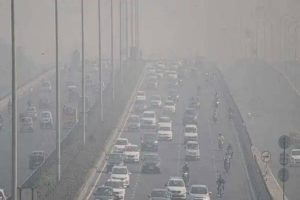The Supreme Court on Thursday refused to interfere in the appointment of senior IPS officer Dilbagh Singh as the acting DGP of Jammu and Kashmir but asked the UPSC to expedite finalisation of the panel of names for making a regular appointment to the post.
A bench of Chief Justice Dipak Misra, Justice A.M. Khanwilkar and Justice D.Y. Chandrachud gave the Union Public Service Commission (UPSC) five weeks to finalise the panel of names after it was told that a request in this regard was forwarded to the commission soon after earlier DGP S.P. Vaid was removed.
The court was told that the UPSC had sought some more details, which would be made available in a couple of days, the state’s lawyer Shoeb Alam said.
On the other hand, Prashant Bhushan, appearing for former Uttar Pradesh DGP Prakash Singh, told the court that Dilbag Singh’s appointment as the acting DGP was contrary to the top court’s 2006 judgment and its later orders. Even if an acting DGP was to be appointed it should have been the senior most officer in state police hierarchy, he contended.
Attorney General K.K. Venugopal told the court that former DGP Vaid and four others have no problem over Dilbag Singh’s appointment.
Bhushan told the court that he had already moved a contempt petition over alleged violation of the top court’s order in the appointment of the acting DGP.
Bhushan, during hearing of the matter on September 11, had questioned the appointment on the grounds that the officer had been charge-sheeted in a recruitment scam.
The senior counsel had told the court that Vaid was removed even though there were no charges against him and without consulting the State Security Commission.
The 2006 apex court directions on police reforms came on a petition by former Uttar Pradesh DGP Prakash Singh, wherein it was ordered that there cannot be an acting DGP for any state.
The court also made it mandatory for states to send a list of three senior-most IPS officers to the UPSC for clearance before appointing the DGP.
On July 3, 2018, the Supreme Court passed another order to lay down further guidelines for the DGP’s appointment, stressing that there is no concept of an ‘acting DGP’.












